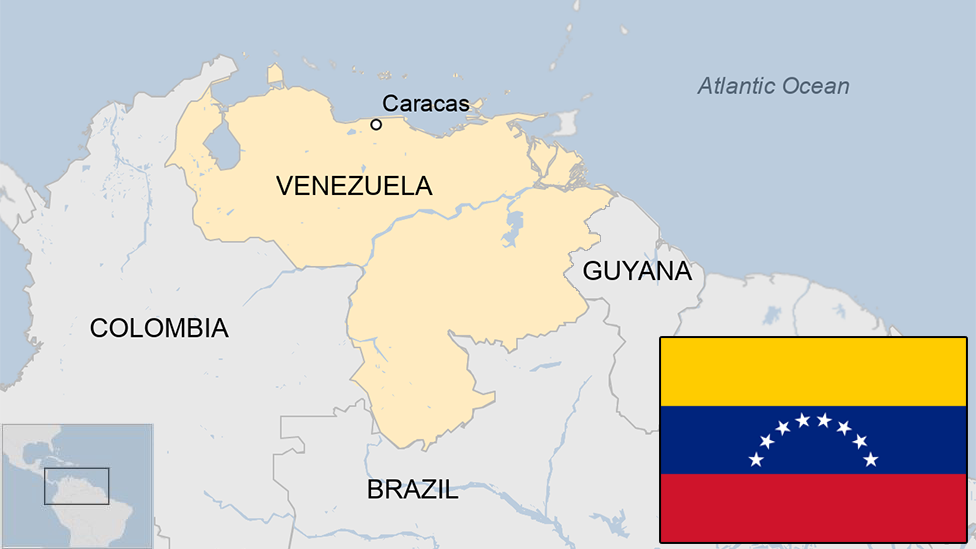Crossing Divides: When Chavistas and 'Escuálidos' bang the drums of peace
- Published
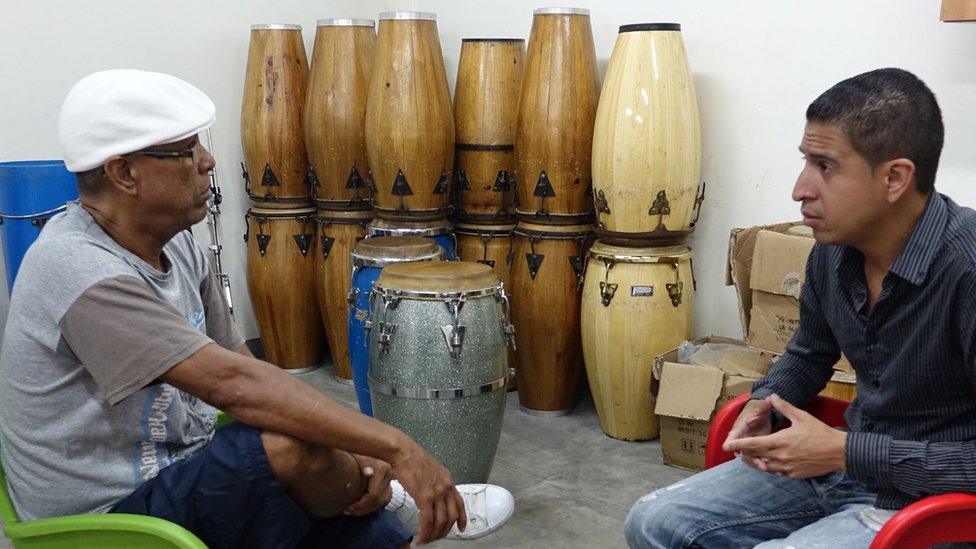
Venezuela's political landscape is among the world's most bitterly divided. But can shared passions inspire opponents to put differences aside for the common good?
If anything can unite two Venezuelans, it's the rhythm of salsa.
The country is in the grip of an economic crisis and suffering severe food shortages. Last year more than 120 people were killed as anti-government protests led to violence, amid claims of police brutality and illegal detentions.
So it might seem unthinkable that music could bring together a Chavista - a member of a group named for their fervent support of the late President Hugo Chávez - and an activist determined to oust the ex-president's socialist successors.
But high in the capital, Caracas, political opponents Pedro García and Leandro Buzón are dancing to the same beat in a bid to shape a better future.
"A drum opens your heart. It unites even enemies," says Mr Garcia.
"We're from the same country, and in its time of need we're going to reach out our hands and work together."
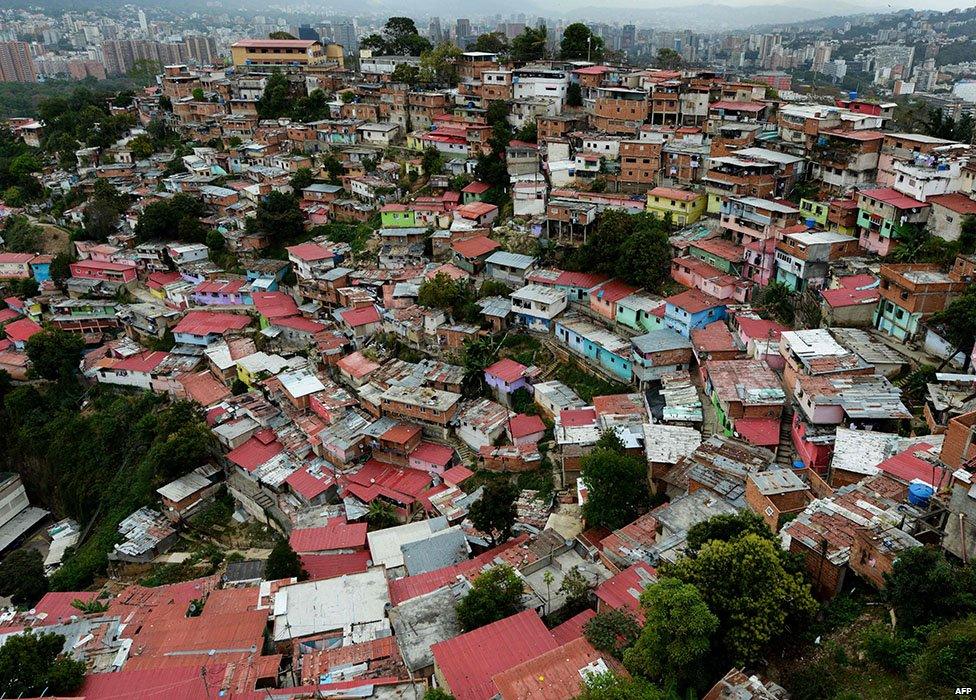
The ongoing economic crisis has deepened the problems in San Agustín
Mr García, a musician and former drug addict known as Guapachá (hot dancer), was born in the slum neighbourhood of San Agustín 57 years ago, and proudly states he has been "clean" for the past 30. The son of a Cuban musician, he grew up amid poverty and violence, and has six gunshot wounds to prove it.
These days, through his percussion school, Guapachá tries to steer youngsters away from trouble.
"Going through all that I have makes me understand these boys," he says. Like many slums in Caracas, the world's second most violent city, San Agustín has a history of gang violence. And the current crisis has deepened its problems.
The relatives of some he works with have been involved in shootings. But Guapachá points out: "The kids are here."
Guapachá was inspired by the charismatic leadership of Mr Chávez, who rode a wave of popular outrage at the traditional political elite to win power in 1998. Supporters revere his socialists for using oil riches to reduce inequality.
It makes Mr Buzón an unlikely partner. He too grew up in a barrio. It is called January 23 - a traditional bastion of the left and a Chavista stronghold. But the 30-year-old sociologist and master of political science is no political ally.
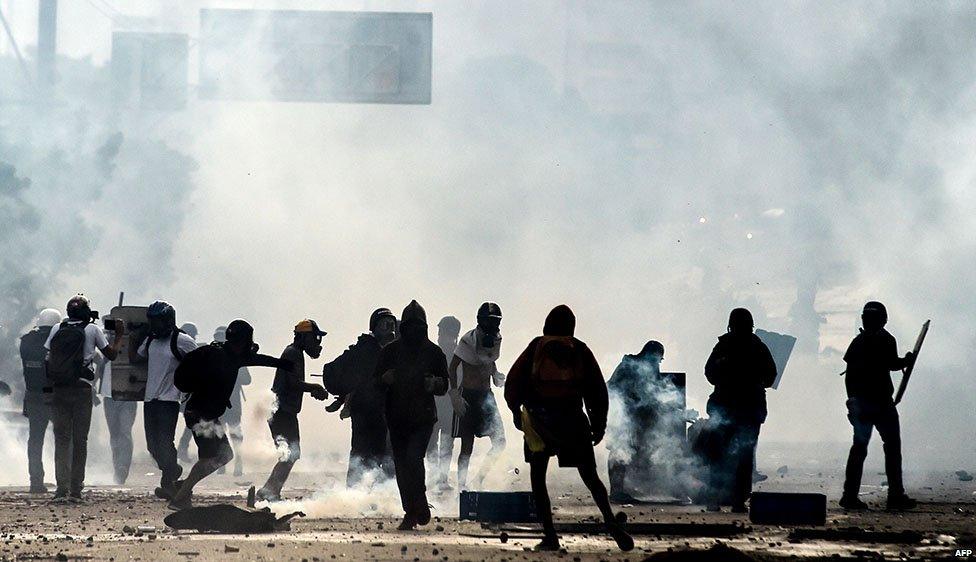
Anti-government demonstrations turned violent last year
He campaigns for Primero Justicia, the opposition party led by Henrique Capriles - who was narrowly defeated in the bitterly contested election of 2013. Mr Capriles, who led calls for business to play a greater role and had demanded a presidential recall referendum, was seen as the opposition's best hope of gaining power.
But he was banned from the electoral process last year over "administrative irregularities". His sidelining triggered street protests and claims of dictatorship.
Despite this, Guapachá says: "Leandro is my pana (friend); it's like he's my son."
Mr Buzón founded the social organization Caracas MiConvive to work with victims of violence, promoting peace and driving change within communities. This shared motivation for improving the lives of ordinary Venezuelans prompted a mutual friend to introduce them five years ago.
Mr Buzón had heard about Guapachá's youth work and remembers telling the older man: "Look, Guapachá, I like what you do. I do community work too, let's sit down and talk."
These days, five afternoons a week, they can be found together, concerning themselves solely with salsa.
"Guapachá is still a romantic, he still believes in [Chávez's] 'Revolution'… but he is a man with the biggest heart," says Mr Buzón.
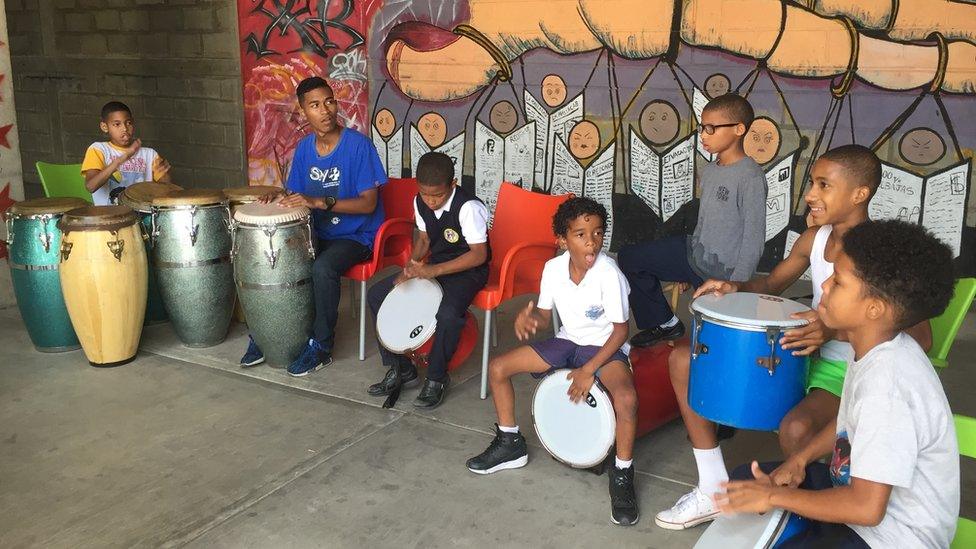
Sitting alongside the boys tapping out a rhythm at the San Agustín percussion school, the men glance at each other and enjoy the effects of their work.
Oraiker, 12, improvising with a classmate, shares their vision.
"I want to play music and help children who are on the street," he says.
But his tutors' alliance was not initially welcomed. Mr Buzón says fellow activists labelled his new friend an infiltrator.
"People thought it was offensive when he went about wearing a shirt with the slogan: 'Chávez, the heart of the people'."
Guapachá, who even today sports a shirt decorated with an image of Mr Chávez's eyes, faced the same problem.
"They asked me, 'Are you going to work with these Escuálidos?'," says the musician, using the slur Mr Chávez's reserved for "the squalid ones" who challenged him. He remembers them being turned away from one community space where they wanted to perform. Hauling drums onto their shoulders, they had walked on to find somewhere else to teach the kids.
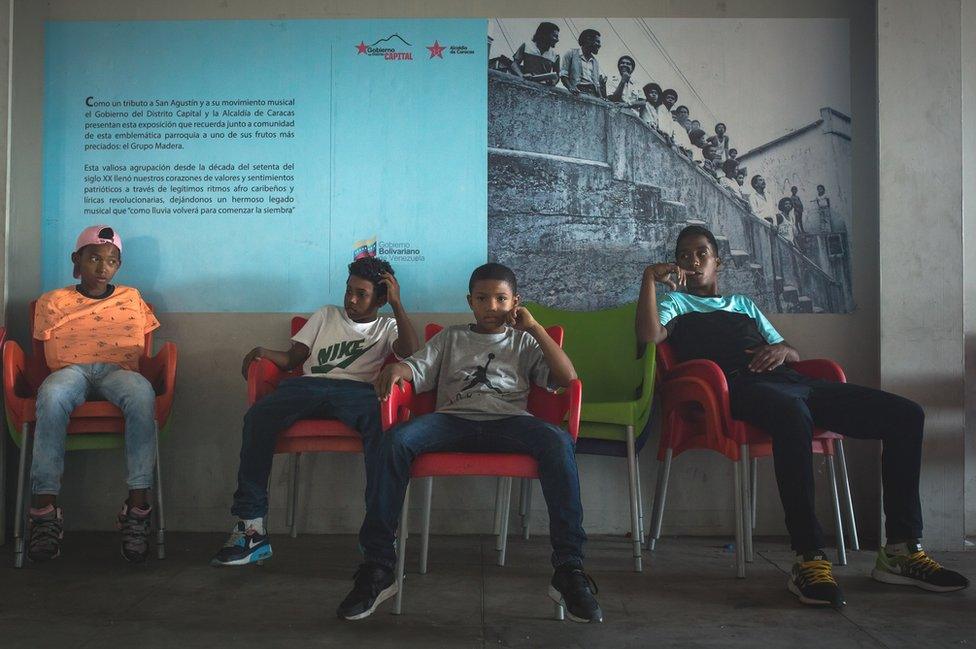
But in this neighbourhood, with its steep streets and tin-roofed houses perched one on top of another, Chavistas and their opponents suffer the same problems.
Their friendship came to be accepted.
"I could not have entered with the same strength, acceptance and affection in San Agustín, and Guapachá could not have gone into other areas where I am well-accepted," says Mr Buzon.
"The story of Venezuela that some politicians try to tell us is only meant to divide us."
Through their work, the friends try to spread a message of unity to allow the country to move forward.
As Mr Buzon puts it: "There is no eastern or western salsa, there is only one salsa."
Photography: Wil Riera

Crossing Divides

Crossing Divides: a week of stories about people creating connections in a polarised world.

Do you have experience of building bridges within divided communities? Share them with us by emailing haveyoursay@bbc.co.uk, external.
You can also contact us in the following ways:
Tweet: #CrossingDivides
WhatsApp: +44 7555 173285
Text an SMS or MMS to 61124 (UK) or +44 7624 800 100 (international)
Please read our terms & conditions
To send your stories.
- Published12 August 2021
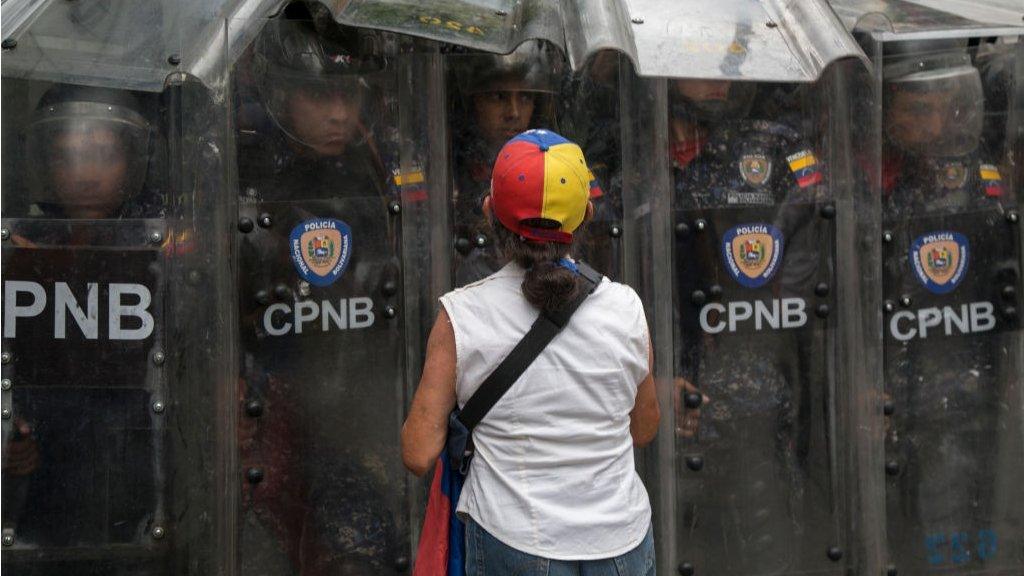
- Published8 April 2017

- Published9 September 2024
